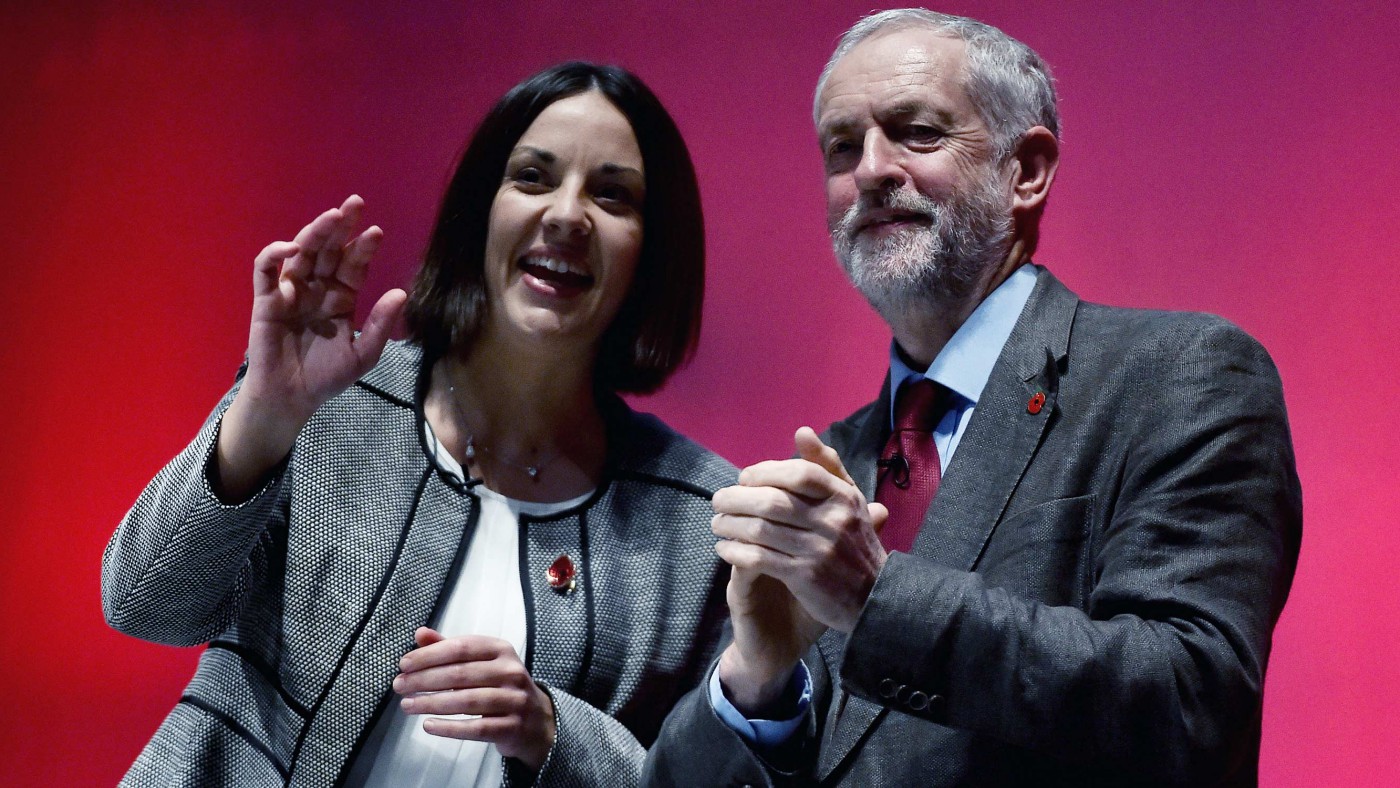The consensus from the weekend’s gathering of the walking dead – not Halloween, Scottish Labour conference – is that the party’s young leader Kezia Dugdale gave a good speech to the bedraggled remnants of what remains of the faithful. She certainly seems to be well-motivated, committed and gutsy. You would have to be all those things, or insane, to want to lead Scottish Labour in its current condition, now that is has only one Westminster MP. Yet, Dugdale has taken on the great patriotic, Unionist mission of trying to revive her party. She deserves sustained applause for trying.
That does not mean that she will succeed. The Nationalists continue to defy gravity and lead by anything between 30 and 140 points in the opinion polls. Most Scottish voters overlook the SNP’s dire record in education and health and prefer to wallow in feel-good, one party state sentimentality. A new poll for YouGov suggest that Nicola Sturgeon, the SNP leader and First Minister, is even more popular with Scots than the Queen.
As Chris Deerin says in the Daily Mail, there will come a moment when Queen Nicola’s bubble bursts. It is what happens in politics. Ask Tony Blair, or Gordon Brown, or Alex Salmond, or (soon) Angela Merkel. But, in Sturgeon’s case there is almost no chance of it happening this side of next May’s Holyrood elections, in which the SNP is on track to win big.
Scottish Labour’s activists and members have responded to this dilemma by deciding to nuke what is left of their party’s electoral prospects, aiding the SNP and the Tories in the process. The party’s Scottish conference voted overwhelmingly against the renewal of Trident, the UK’s independent nuclear deterrent, which means that Scottish Labour is now a unilateralist party. Dugdale isn’t against Trident. The Shadow cabinet at the UK level is split. Jeremy Corbyn says he would never pull the nuclear trigger. Would you put this lot in charge of defending Britain?
South of the border, these developments can be translated into Labour defence policy being in chaos. In Scotland, won’t the policy switch be popular? Not where it matters, no.
The polling on Trident is mixed, depending on which questions you ask and how they are loaded, but the evidence suggests that large numbers of middle-ground, mainstream voters are pro-nuclear and pretty robust on defence, as they are on the need for welfare reform. If they vote SNP it has nothing to do with nuclear weapons, they are instead choosing the united party they think will stand up best for Scotland against a supposedly wicked Westminster.
The Scottish Labour offer becomes even more confused after this conference vote on Trident. It’s a vote against, but Labour in UK terms is divided and none of it will prevent the Tories getting renewal through parliament. The Nats can just shake their heads and say of Labour that it’s a shambles, which is always the easiest and most destructive line against another party if it is credible and said often enough.
Ultimately, the mistake Scottish Labour is making is that it is haring off leftwards in pursuit of voters who it is highly unlikely will ever return to the party. It might – just might – win back a little support in a handful of particularly left-wing seats in Glasgow or Dundee, although even that is questionable considering the power of the SNP operation on the ground.
Scottish Labour risks alienating the very voters – aspirational, home-owning, moderate, voted for Blair pre-Iraq – it could get if the membership wasn’t trying to rerun the early 1980s. Those voters now have a potential new home too, if the moderate Tory leader Ruth Davidson can connect and persuade them that someone has to give these robotic Nats some proper opposition in the Scottish parliament.
Writing at the weekend, Aidan Kerr put it well: “Scottish Labour is unable to comprehend just how former these heartlands are. No matter what they support, these voters are gone for good. With six months to go Scottish Labour is talking to voters who will not listen while ignoring those who are.”


